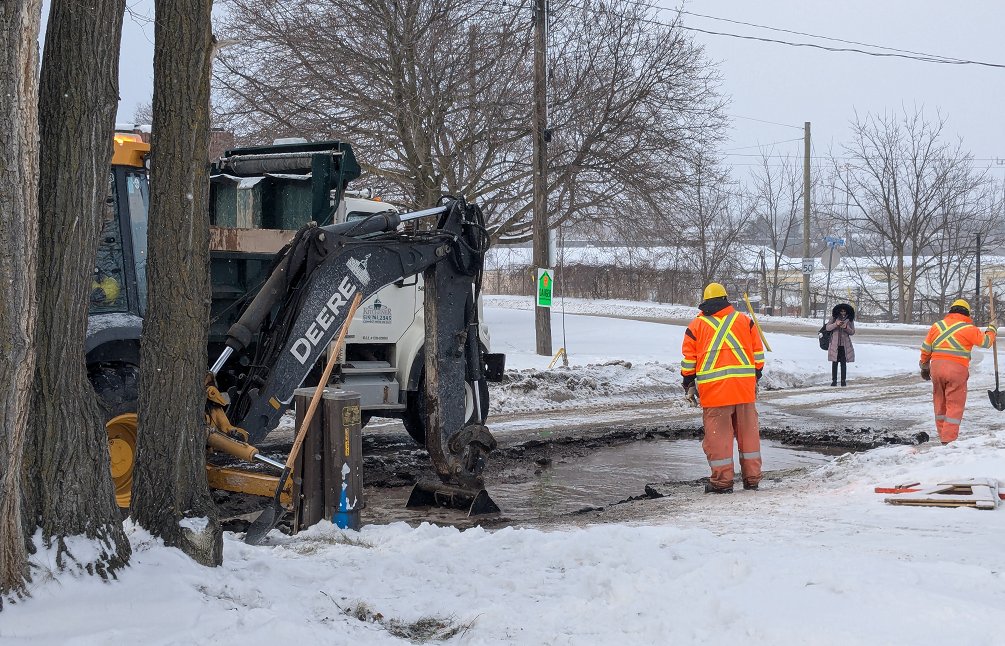‘Tis the season for watermain breaks. Here’s how to avoid frozen pipes

Posted Jan 15, 2025 04:17:43 PM.
Last Updated Jan 15, 2025 04:24:40 PM.
Since the start of this year, Kitchener Utilities responded to eight watermain breaks and last year it recorded 55 watermains bursting in the winter, which is slightly up from 2023 when the city had to repair 44 of them.
In 2022, Kitchener recorded 94 watermain breaks, which could just be because the weather was colder that year.
“I think were in pretty good shape, it would have to be an extended period of time, 10 days to 20 days of – 20 to -30-degree weather, that’s when you’re really going to see a lot of frost enter the ground,” Tammer Gaber, City of Kitchener’s Manager of Operations, Gas and Water, said.
Watermains are found six feet underground typically, so the frost must stretch thick to reach the pipes. If a weak spot gets shifted when the ground shifts, it causes watermains to break.
“Basically, when that deep freeze sets in, if its for a long, long period of time, that’s when you start to see the volume of main breaks increase and the volume of services increase.”
Gaber’s advice for households worried about pipes: if the weather gets colder run a small, pencil-thick stream of water constantly from a basement tap overnight to prevent freezing, which can occur during watermain break repairs.
“If they live in Kitchener and they’ve had a frozen service like the service line entering the home has been frozen in past. As we get deeper and deeper with frost, it’s probably a good idea to run a basement tap.”
He added watermain breaks are typically occurring in January and February. This could happen due to weather, soil conditions or ageing infrastructure.
Kitchener Utilities has crews on standby if another one breaks this winter. In most situations they come to make it safe, dropping the water pressure slightly and follow up with repairs. Gaber said it usually takes under 12 hours to fix it once it’s been reported.
Recent improvements to the city’s pipes and infrastructure have shown to be useful. In 2015, when the LRT was being installed, Gaber mentioned that most of the infrastructure for watermains in downtown Kitchener was replaced, which was a busy spot for repairs prior for them.
“We’re reaping the rewards now,” Gaber said as they aren’t having to make repairs in the area as often.








